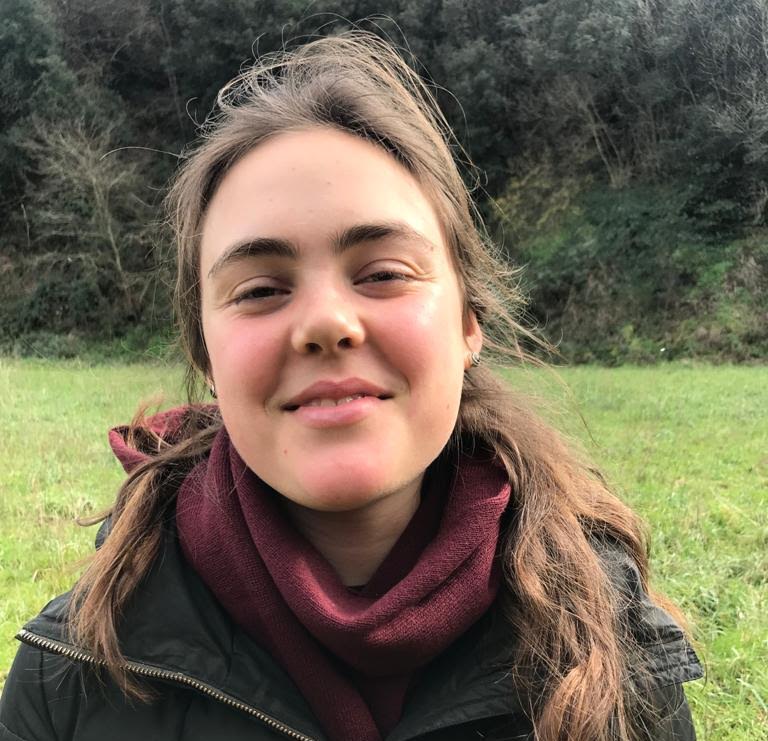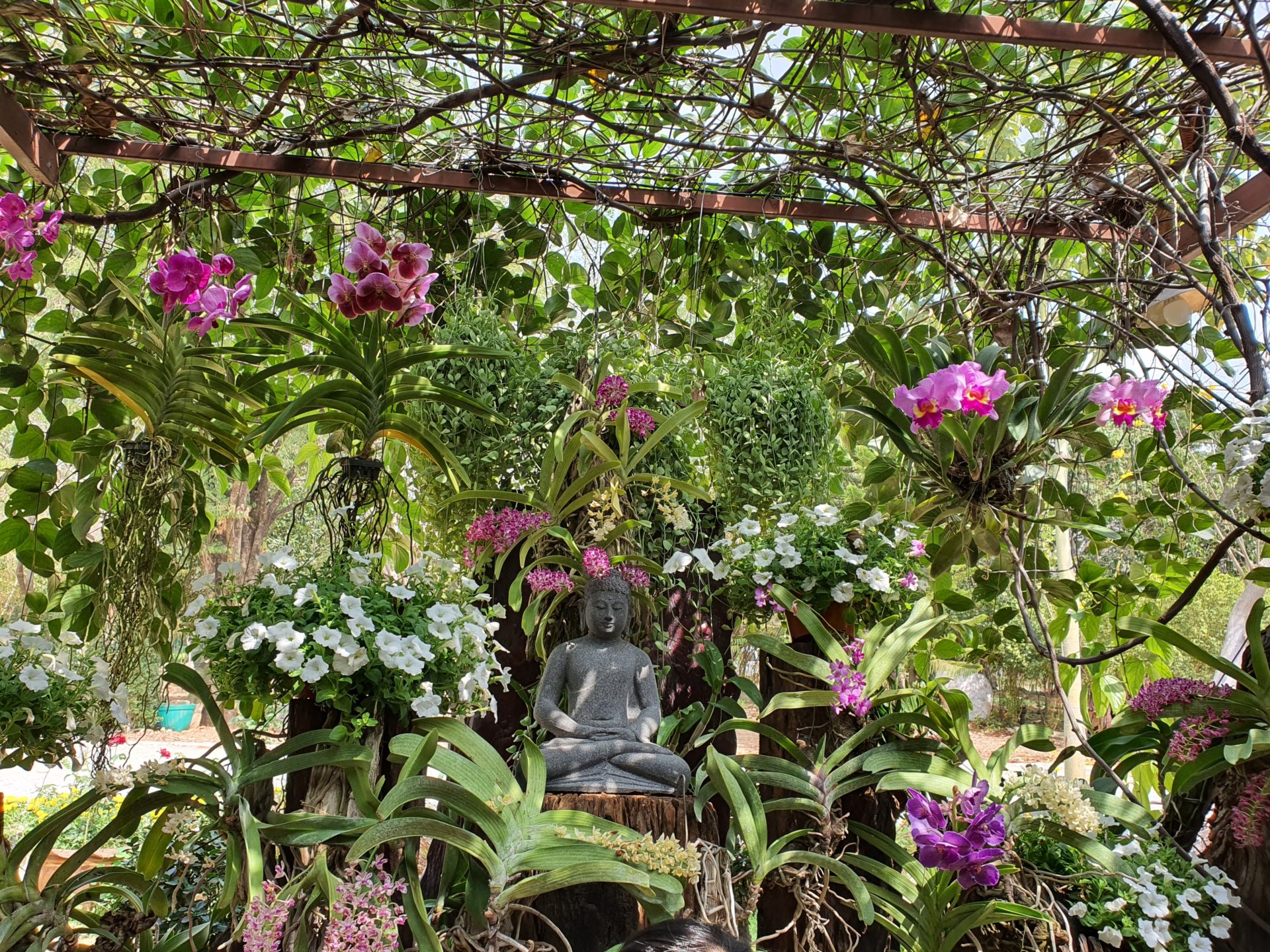By Jadzia Tedeschi

In the midst of this big stop, billions of people are confined to their homes. We no longer daily attend schools and workplaces, as interactions with our local communities are severely restricted. In contrast to B.C. (Before Coronavirus), my spheres of existence seem to scale between home-self and world. Connective tissue is currently on hold—the only embodied interactions I have with other people in Vetralla,
By Jadzia Tedeschi

In the midst of this big stop, billions of people are confined to their homes. We no longer daily attend schools and workplaces, as interactions with our local communities are severely restricted. In contrast to B.C. (Before Coronavirus), my spheres of existence seem to scale between home-self and world. Connective tissue is currently on hold—the only embodied interactions I have with other people in Vetralla, Italy are in the market and grocery store. All other contact is virtual, so it hardly matters whether someone is two or two thousand miles away. Never in my twenty years has the world felt so puny and immense. I stare at my ceiling, lost in wooden beams and terracotta bricks, and wonder where this is all going: When will I be reunited with my loved ones? When will I be able to return to school? What does it mean to come of age After Coronavirus? Will society finally get on a sustainable track?
Of course, there is no answer to such questions. Every day I read news from different sources, in different languages—I even go out of my way to gauge what Fox News has to say now and again. While I cook, I listen to podcasts on contemporary issues. My deepest aspiration is to be an instrument of the paradigm shift our society must undergo if we want to avoid collective self-destruction. I spend a great deal of energy on trying to understand this. Yet it’s too much, too vast, too complex to fully wrap my mind around my existence—let alone global goings-on. I am tempted to draw linear explanations: red/blue, good/bad, genius/moron, but they are always insufficient and superficial.
I love words and stories and think a lot about how we go from being to abstraction, from a unique object or moment to a series of letters and words. A classic example is apple. How did we go from juicy, sometimes flowery, rancid or sweet, green or red or yellow, and one, two, or three inches in diameter to the mental image we have when we read the word apple? And how, in turn, does my expectation of that fruit influence me when I bite into a real apple?
I vaguely recall, as a child, holding an apple with two hands and feeling it was immense. My biting method was inefficient—a nibble here, catch a little juice there, turn it around, and now my hands were sticky. On the other hand, I have grown up to consuming the whole thing in one minute, with one hand, juice free, toss the core. Mindlessness is much simpler and more efficient than experiencing each singular moment. I could go the rest of my life consuming my idea of an apple, but occasionally I could decide to give the poor apple in my hand a shot and engage with it more holistically.
It now only makes sense to acknowledge my favorite apple grower in Vetralla. Nazzareno Battaglini is a simple man who loves his vegetables and believes his life’s purpose is to nourish our village with his produce. He has learned from the land for decades and uses natural agricultural methods. When lockdown loosened and his market stand reopened, my mother and I ordered two crates of vegetables. I couldn’t possibly carry them all in one go, and Nazzareno insisted on accompanying me with half the load.
When we got to my doorstep, he observed, “You know, people are jumping out of their skins to go back to before, worse than before, to buy stuff.”
I tried to encourage the both of us: “Some people get it though.”
“Sure, the people who kinda got it before now really get it, but those who don’t are going nuts. I saw this today at the market,” he replied.
If there’s one thing this period has reminded us of (not taught us, for these are truths we can always find within), it is the preciousness of life. During quarantine, I almost felt I was experiencing a solitary lazy day every day. Sleeping, eating, grooming, and media consumption patterns were completely up to me and my mother—no outside scrutiny or reinforcement. During quarantine, we were left to ourselves. Like many others, at times I felt frustrated, purposeless, disconnected, lost.
For those not used to looking into themselves, I imagine this was particularly challenging and probably heightened certain evasive tendencies. I know people who stifled themselves with consumption by irregularly eating, compulsively shopping, or binge-watching TV shows. Relationships also suffered from this intimate shining light. My mother and I routinely made snide remarks, bickered, fought, and began anew. More than once, I heard neighbors howling at each other. In several countries, divorce rates skyrocketed.
To me, quarantine was an immense test of integrity: Who am I alone with myself? What do I do when no one is watching?
I know, soon enough, I will return to school in Chicago, Illinois. The pandemic is still ablaze, right before the 2020 presidential election, in a country where my friends and classmates don’t feel welcome—or safe—due to their racial or gender identity. Once I leave for out there, I have no guarantees of when I can come back to my friends and family in Europe. Out there, there will be inward and outward violence. I’ll be saddened and disillusioned. I could lose hope.
In this period, I felt the young Thich Nhat Hanh close to me. He was exiled from his country, which he left to bring peace. Martin Luther King Jr., his friend and ally, had been murdered. My conditions are far less extreme, but I have never desired more clearly to be an organ of peace in this world. Like Thay says, a bodhisattva society is not one where you see people levitating left and right, but is one of common sense, the sort of truth that comes from our hearts, and thus humanity’s hearts, and thus from something greater.
We clearly cannot go on like this for long. When I am old, the world will be a very different place. What that will look like is in our hands. I worry and obsess about this sort of question, which sometimes paralyzes me. In her interview on the podcast “Your Undivided Attention,” Christiana Figueres invites us to imagine the kind of world we want to live in… cities with shared vehicles and green lungs instead of asphalt planes, a biodiverse society operating on renewable energy, quiet energy, clean energy, where we can walk outside and enjoy the air we breathe.
To imagine something truly different, I know I need to take breaks from my thought patterns. If I want a peaceful world where people have the common sense to share, look out for each other, and delight in beauty, I need to know what that feels like in my own skin. During this quarantine, I realized I want to be alive, construct, and consolidate positive habits that bring me back to myself as a backbone for when I’m out there. I especially paid attention to aligning my posture—on the computer, and while cleaning vegetables or washing dishes. And then the birds made me listen in awe when they took over town and filled it with songs of spring.
Jadzia Tedeschi, Compassionate Manifestation of the Heart, is twenty years old and grew up in Vetralla, Italy. With her mom, she lived in Plum Village France for a few years. In the fall of 2020, she will begin her studies in Philosophy of Science in Chicago, Illinois, US.

